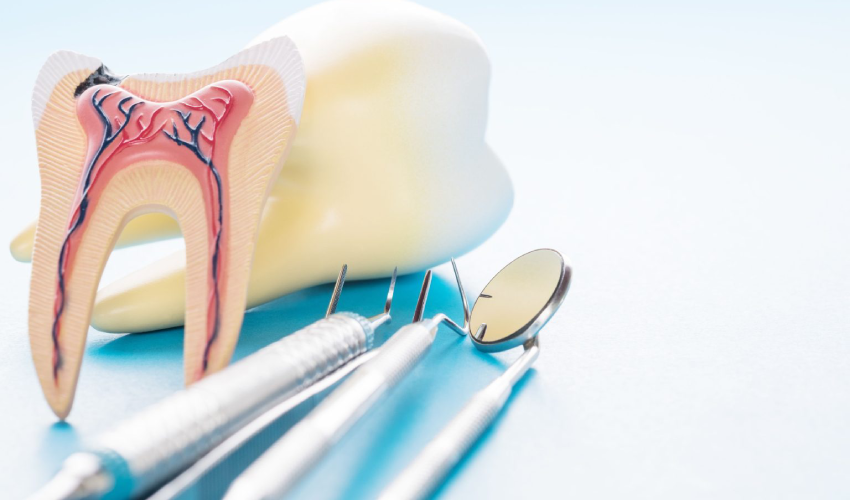Are you experiencing severe pain when eating or drinking hot and cold foods? Does the pain extend to your jaw or ear? Does the area around the affected tooth feel tender? If so, you may be dealing with more than just a cavity and should speak to your dentist as it may be time for a root canal procedure. While root canals have gained an infamous reputation over the years, they are actually one of the most well-regarded remedies for treating infection and discomfort in teeth. A root canal is one of the most common treatments for damage to dental nerves caused by infection or inflammation. But how do you know if you need one? In this blog post, we’ll give you more insight into how a root canal works, how to know if you need one, what happens during treatment, and which conditions may benefit from this procedure. Stick around until the end of our post to get some important tips on aftercare following your appointment!
What Is A Root Canal?
A root canal is a procedure that removes damaged or infected tissue from within your tooth. This procedure also fills and seals off the area of your tooth where decay has occurred. The tissue that is removed during this procedure is called “pulp”—it contains nerves, blood vessels, and connective tissue that can become damaged due to injury or infection.
When Is A Root Canal Necessary?
If you experience any of the following symptoms, then you may need to consider getting a root canal therapy in Shreveport:
- Severe pain when eating
- Sensitivity to hot and cold temperatures
- Tenderness on the gums
- Swelling near the affected area
- Discoloration of your teeth caused by inflammation or infection and/or gum abscesses.
If any of these symptoms apply to you, then it’s important to contact your dentist as soon as possible for an examination and diagnosis. Depending on what they find, they may recommend either a crown or an extraction followed by an implant instead of a root canal.
What Are The Benefits Of A Root Canal?
The primary benefit of getting root canal therapy in Shreveport is preserving your natural teeth instead of having them extracted. Other benefits include restoring the full function of your affected teeth (such as biting and chewing), relieving pain caused by inflammation or infection, preventing further damage to surrounding teeth due to decay, avoiding bone loss caused by untreated infections, reducing costs associated with long-term treatments such as implants, bridges, and dentures, protecting other healthy teeth from damage caused by an infection in one particular tooth, etc.
How Painful Is A Root Canal?
Root canal therapy is typically not as painful as most people think. In fact, the procedure can often provide pain relief. Before the procedure begins, patients are given a local anesthetic to numb the area around their teeth so that they don’t feel any discomfort during treatment. Afterward, some minor tenderness may occur for a few days or weeks, depending on the severity of your condition. Your dentist can provide you with more information about what to expect in terms of pain and discomfort after a root canal procedure.
Restore Your Abscessed Tooth With A Root Canal
Root canals are an effective way to save teeth that are severely decayed or infected. While some people may prefer having their affected teeth extracted instead of receiving treatment with a root canal (due to cost considerations or fear), it’s important to remember that this type of treatment can help preserve natural teeth for many years—and even decades—to come! Talk with your dentist in Shreveport about whether or not a root canal might be right for you depending on the severity of your discomfort and/or condition. They will be able to provide more information about which type of treatment would work best for solving your problem!

